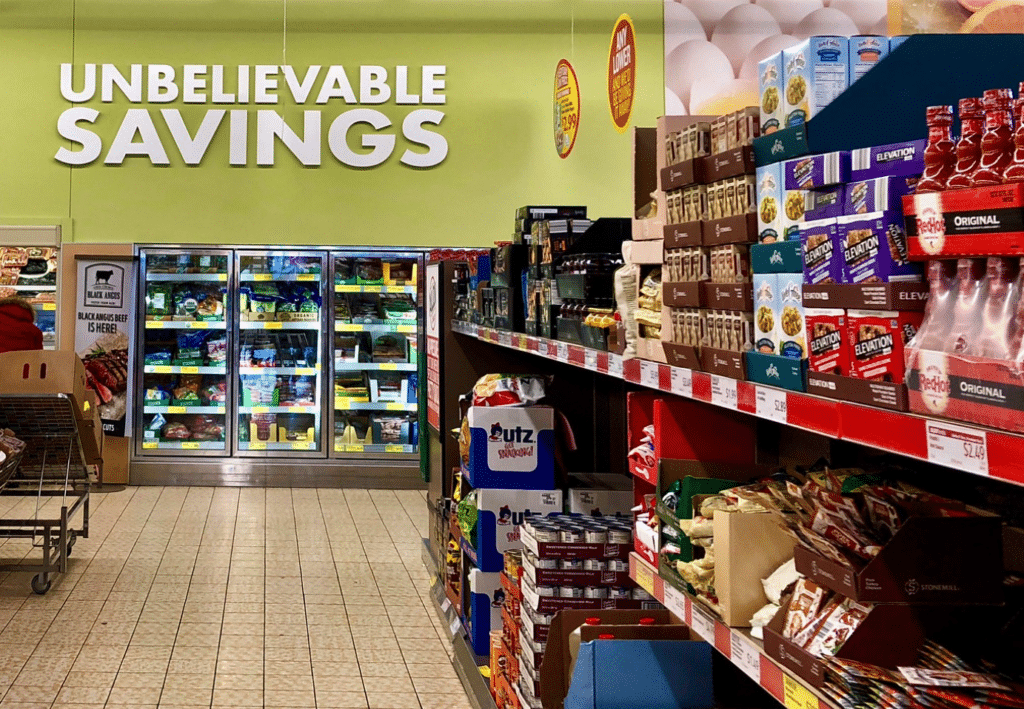
The good news is that we’re finally starting to see better deals at the grocery store after years of price increases. The bad news is, one analyst says the deals are already about as good as they’re going to get.
“Promotions are losing steam,” NIQ declared in a recent report. If so, that would be an unwelcome development for shoppers who’ve been waiting for the deals to get increasingly better.
During the Covid pandemic, as we all know, prices rose and promotions declined. As supplies normalized, inflation took hold and demand decreased, brands and retailers began ramping up deals again, and “consumers were becoming loyal to being disloyal by buying on promotion,” NIQ observed.
This year, NIQ has found that promotional sales “continue to gain momentum, but the growth rate is slowing.” In the first half of 2024, 28.4% of all grocery dollars were spent buying items on some kind of deal, up 6% from the same time last year. But the number of individual items sold on promotion is only up 3%.
So the deals are back – but if you were waiting for them to get even better, NIQ warns we may already have hit peak promotions.
That warning comes as a number of brands have already begun offering more promotions, whether in the form of coupons or in-store deals, after they raised prices to the point that shoppers began to balk. But this time, many of those brands are being cautious so they don’t overdo it.
“I would describe it as reasonable,” ConAgra CEO Sean Connolly said of the promotional environment, in a recent call with investors. PepsiCo CEO Ramon Laguarta described his company’s promotional “sweet spot” as offering deals for the shopper “who needs it, in the products that need it, versus a blanket approach.” And Kraft Heinz CEO Carlos Abrams-Rivera said, pre-Covid, his company’s attitude was “let’s spend a huge amount of promotional dollars inefficiently in order to drive the trade volume.” Today, the company is offering more promotions than it did last year or the year before, but they’re “less than they were in 2019,” as Kraft Heinz aims not to make “dumb mistakes like in the past,” Abrams-Rivera said.
“Unfortunately, many companies promote too aggressively,” NIQ stated, noting that, historically, “nearly 50% of all promotional sales are sales that would have occurred regardless of the promotion.”
That may have been the case during normal times. But these aren’t quite normal times. After promotions fell to all-time lows a few years ago, and then inflation sent prices soaring, some products are now out of reach for some shoppers, who simply won’t buy them at full price.
So brands may want to be cautious. But they also need to be realistic. “I think everybody has had room to do more promotion,” ConAgra’s Connolly said. “And that’s fine. That’s fine because the consumer needs some help.”
As sales of its snacks and drinks have fallen, PepsiCo acknowledged that more promotions may be needed, to get lapsed customers back. “For particular consumers, we need some new entry price points and probably some new promotional kind of mechanics,” Laguarta said.
And General Mills last month pledged a 20% increase in couponing, to help boost sales. “Inflation has been higher for longer than many people assumed it would be,” CEO Jeff Harmening said. “So the job to do is create more value for our consumers.”
Giving away discounts to shoppers who would otherwise buy a product at full price is not the answer. But neither is raising prices, cutting back on promotions, and watching once-loyal customers drift away. “Many grocery brands need to reevaluate their pricing and promotion strategies to better align with consumer needs and avoid getting left on the shelf,” NIQ concluded.
High prices at the grocery store can leave you feeling helpless. But refusing to pay some of those higher prices has brands scrambling to figure out how to reverse declining sales and win you back. So when it comes to pressuring brands to offer more coupons and deals to make their higher-priced products more affordable – you may not be as helpless as you think.
Image source: F Delventhal










